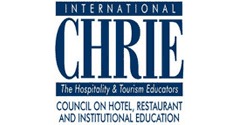Location
Denver, Colorado USA
Information
The hotel industry continues embracing loyalty/rewards programs as a major platform to nurture customer relationships as well as reap return business. The reality is that major hotels have been aggressively spending more but achieve less in defending existing customers. We address this void by examining the structural relationship among perceived program value, switching costs and active loyalty. The proposed model is supported by a unique dataset comprised 188 hotel customers who participated in a online survey. The study distinguishes the impact between perceived program value and switching costs, showing a stronger role of switching costs on active loyalty compared to perceived program value. It also empirically investigate program value signals that affect switching costs, and identify the stable role of switching costs when holding. The findings contributes to the body of hospitality literature and has managerial implications for the industry practice.
Start Date
28-7-2011 4:45 PM
End Date
7-28-2011 5:45 PM
wf_yes
Understanding Active Loyalty in Hotel Reward Programs through Customers’ Switching Costs and Perceived Program Value
Denver, Colorado USA
The hotel industry continues embracing loyalty/rewards programs as a major platform to nurture customer relationships as well as reap return business. The reality is that major hotels have been aggressively spending more but achieve less in defending existing customers. We address this void by examining the structural relationship among perceived program value, switching costs and active loyalty. The proposed model is supported by a unique dataset comprised 188 hotel customers who participated in a online survey. The study distinguishes the impact between perceived program value and switching costs, showing a stronger role of switching costs on active loyalty compared to perceived program value. It also empirically investigate program value signals that affect switching costs, and identify the stable role of switching costs when holding. The findings contributes to the body of hospitality literature and has managerial implications for the industry practice.
https://scholarworks.umass.edu/refereed/ICHRIE_2011/Thursday/2
